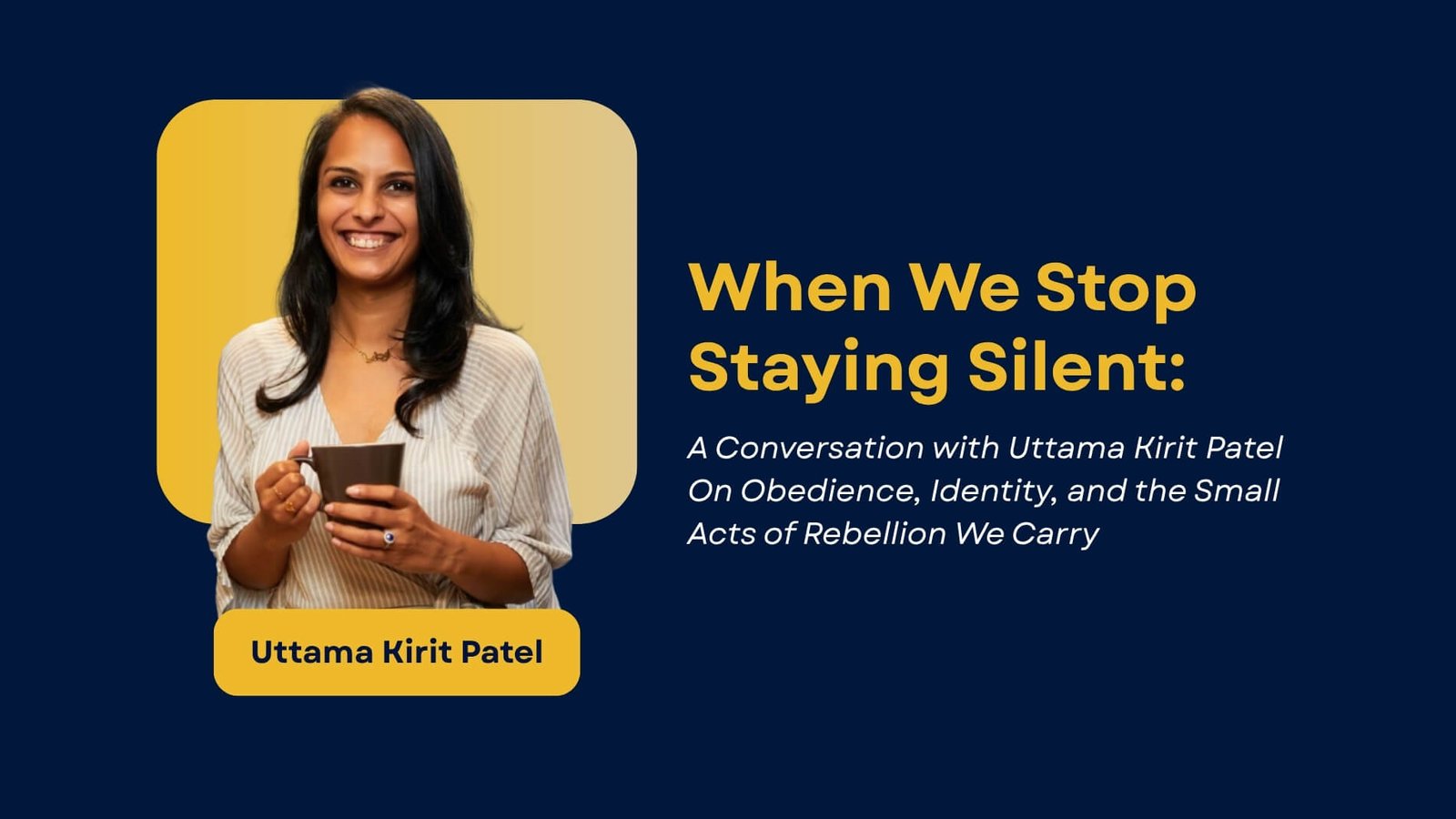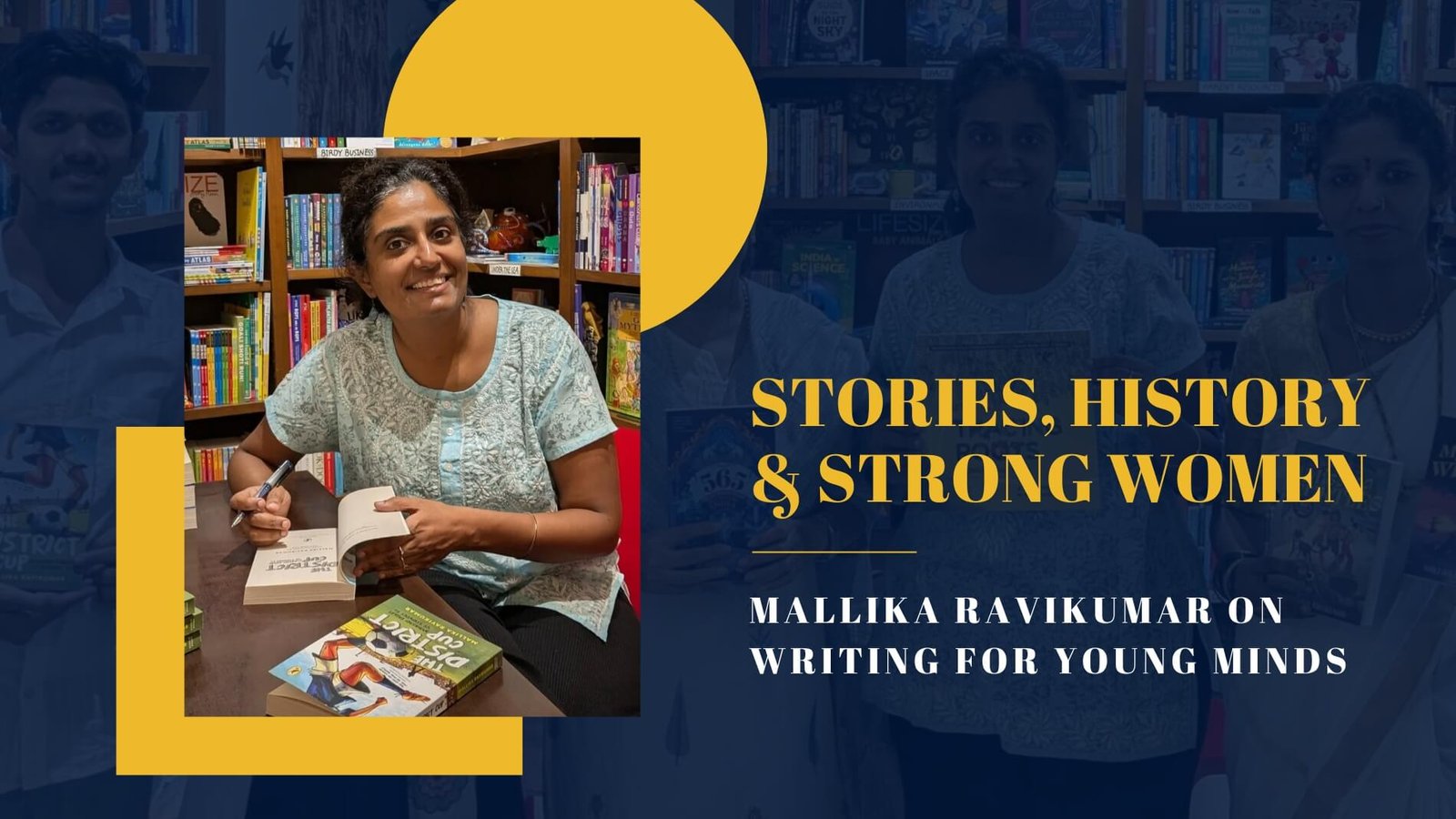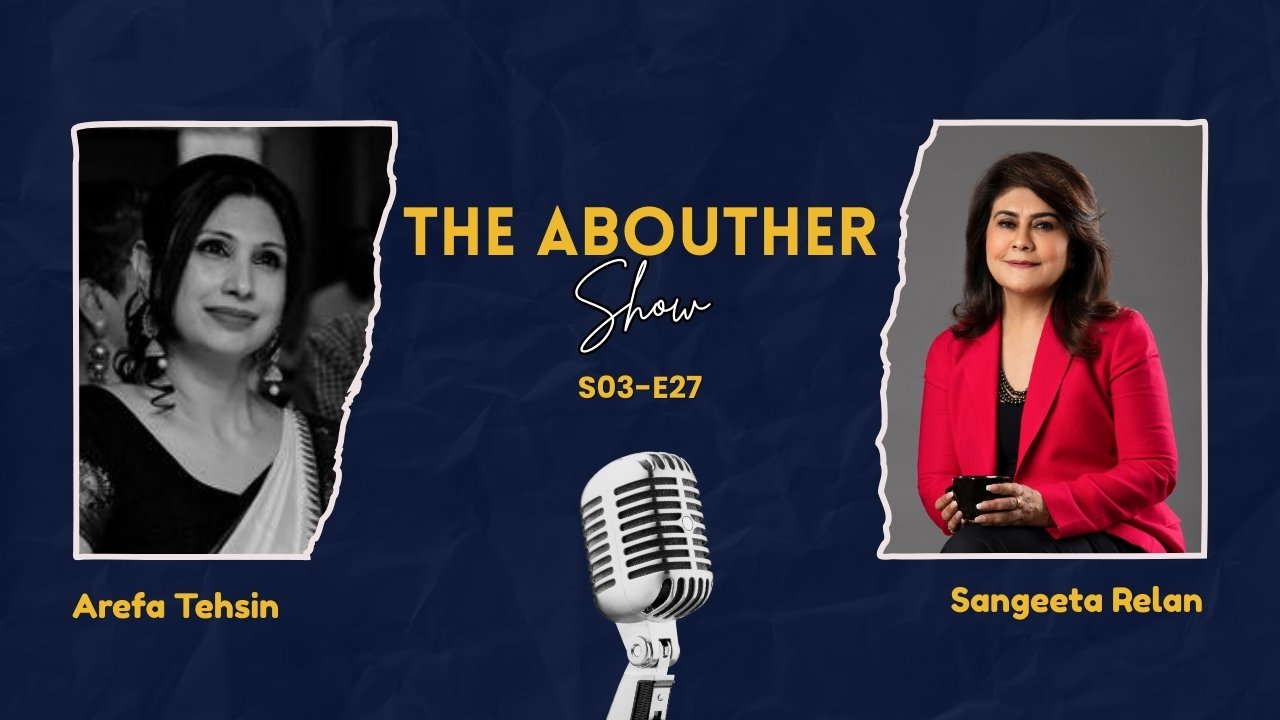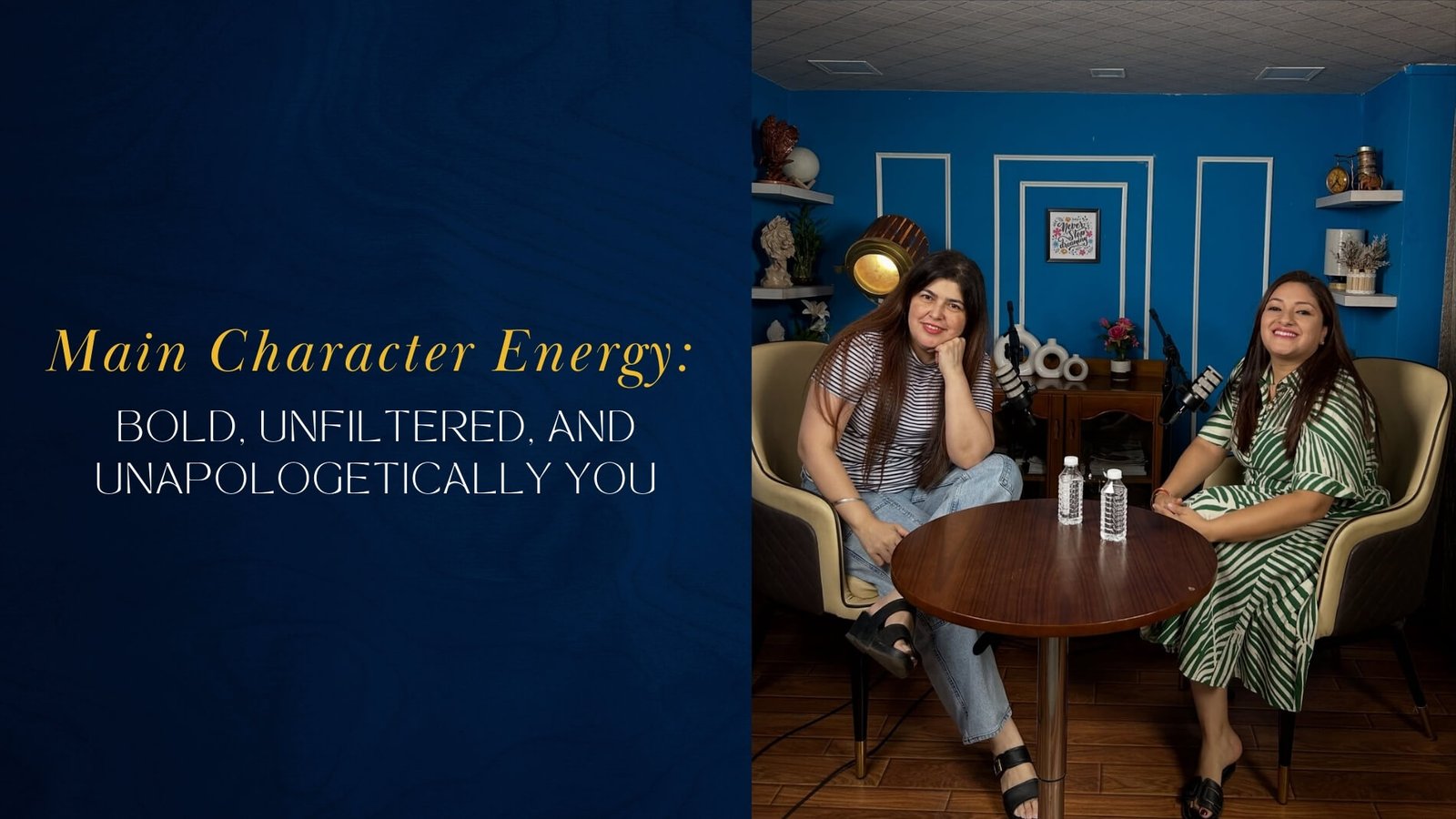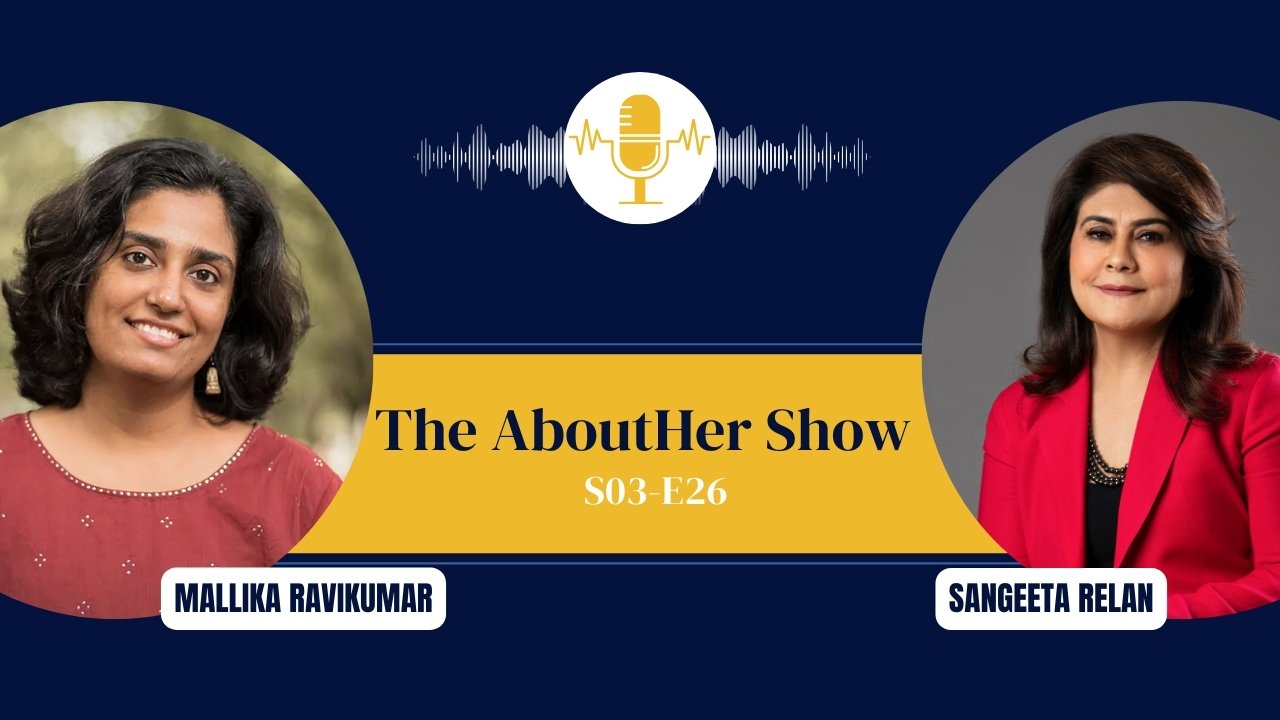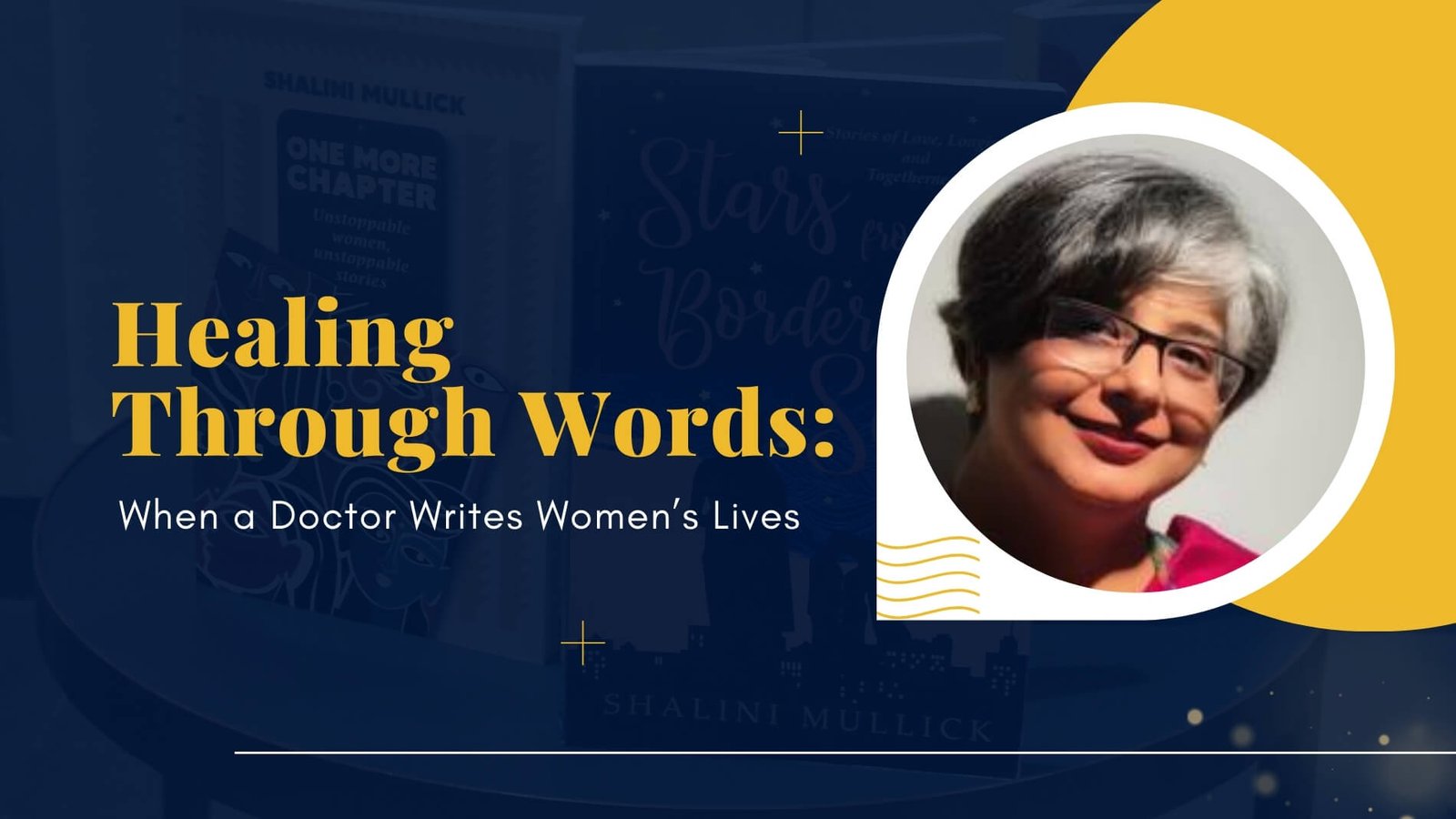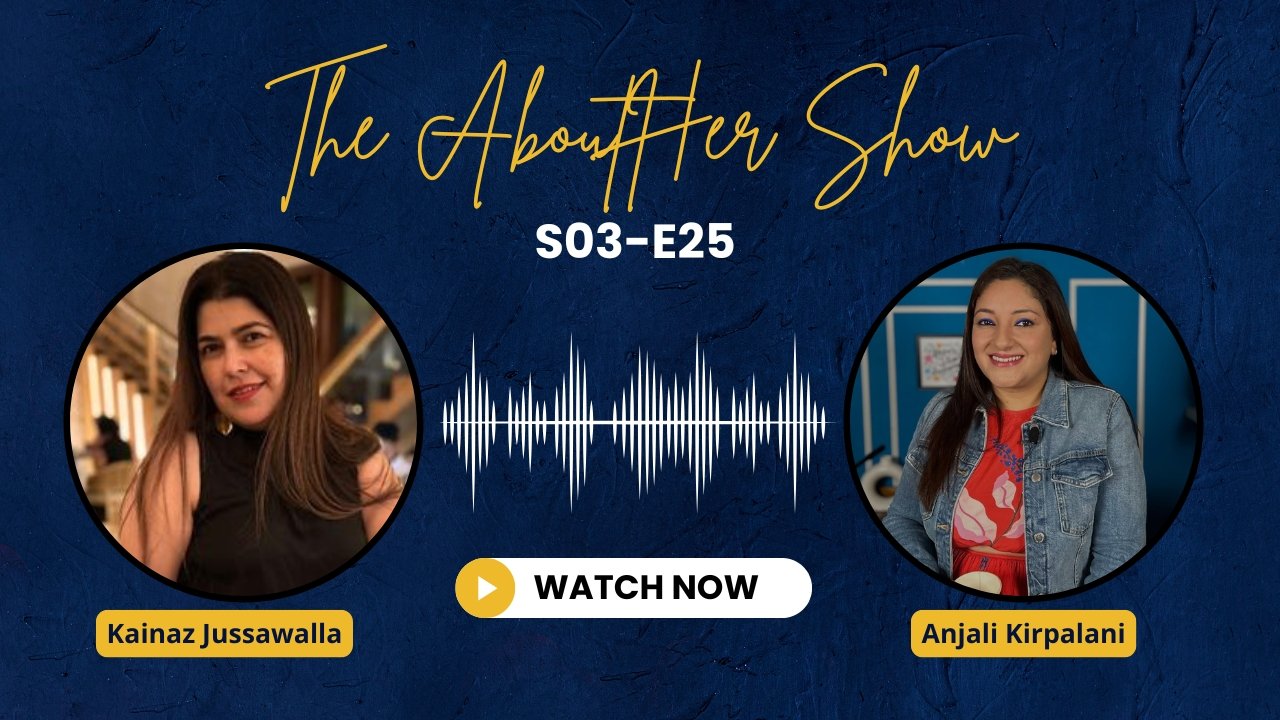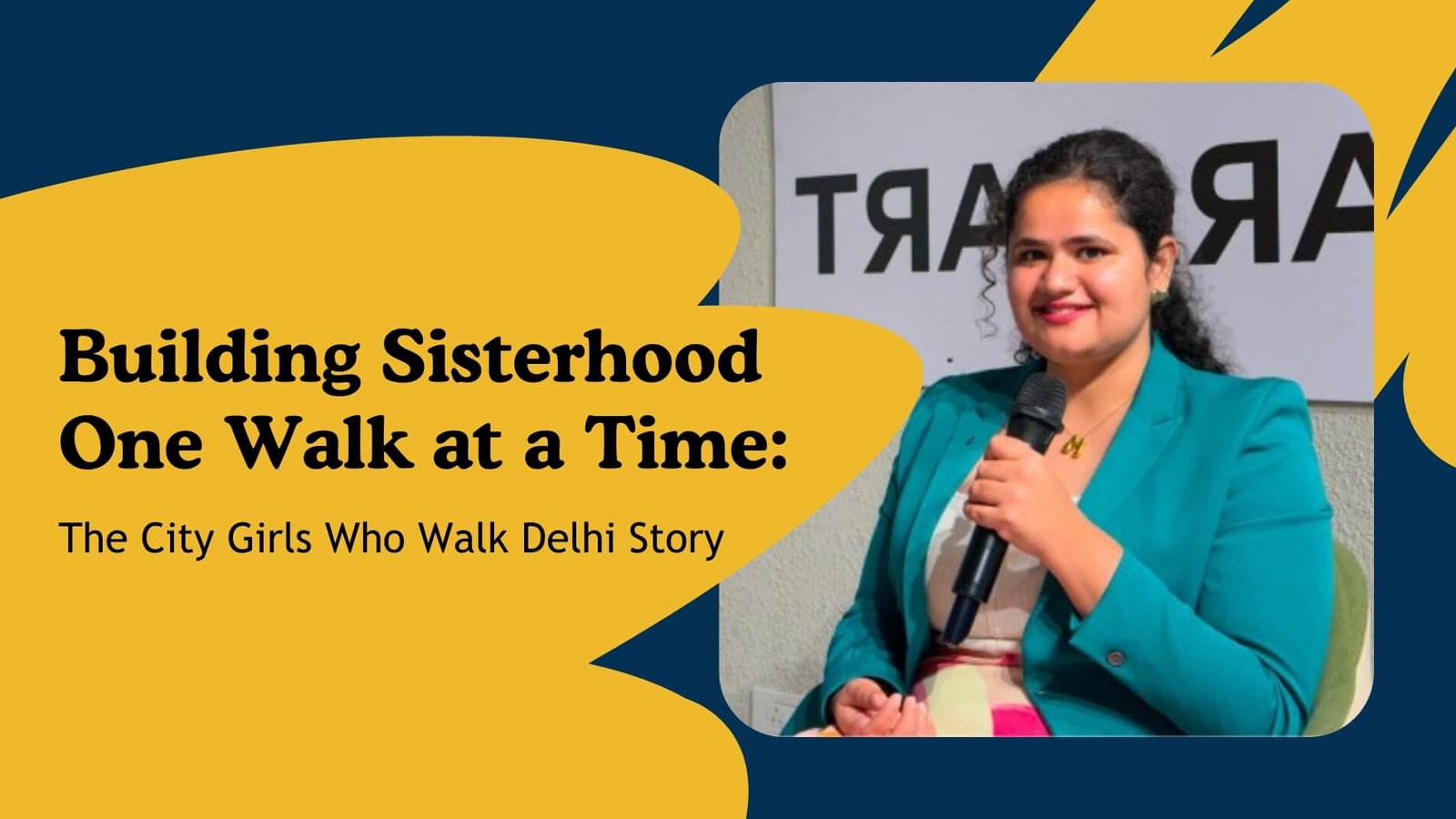When We Stop Staying Silent: A Conversation with Uttama Kirit Patel On Obedience, Identity, and the Small Acts of Rebellion We Carry
Why You Should Read This
Some conversations linger long after they end, because they name what we’ve long felt but never voiced. This week on The AboutHer Show, I had one such conversation with Uttama Kirit Patel, a writer, editor, and the founder of South Asian Parent.
While Uttama’s novel Shape of an Apostrophe is a powerful read in itself, our conversation didn’t dwell on the book alone. It cracked open the deeply personal and the culturally collective, from motherhood as a default to how women are taught to perform silence, from navigating in-law relationships to questioning the roles we inherit.
This was not a literary interview. This was a life conversation. One that explored the quiet power of choosing your words, saying no, and refusing to be assigned an identity you didn’t pick.
Also Read: Power, Purpose & Perseverance- Why Aditi Singh’s Story Belongs on Your Must-Read List
Who Is Uttama Kirit Patel?
Uttama is a woman of many cities, many selves, and many truths. She holds an MPhil in Psychology from Cambridge, has worked across journalism, education, and marketing, and describes herself as someone who “crafts sentences in the shower” and “sniffs books.”
But what stood out in our conversation wasn’t her resume, it was her reflectiveness. She’s someone who’s constantly looking inward and outward, asking: Why do we live the way we do? Whose rules are we following? And what would happen if we stopped pretending we were okay with all of it?
Themes We Explored in the Conversation
1. The Default Roles Women Play
Uttama spoke about how easily women take on roles at home, planner, nurturer, peacemaker, without realising they’re often defaults, not choices.
“Check the default things you’re doing. Do you really want to do them?”
From running WhatsApp school groups to organizing family gatherings, she challenges us to ask whether these are roles we’ve actively chosen, or quietly accepted.
2. Silencing Ourselves to Keep the Peace
One of the most powerful parts of our conversation was Uttama’s reflection on self-silencing, the ways we stay quiet to avoid confrontation, especially in familial and cultural settings.
She shared how, in her own life, learning to speak up didn’t come easily. From writing emails when verbal conversation felt too hard, to practicing honesty early in relationships (especially with her mother-in-law), she’s found her voice, slowly, and on her terms.
“If you don’t say it, people assume it doesn’t matter to you.”
3. Tradition vs Autonomy
We spoke about the invisible but powerful tension women face between tradition and autonomy. Often, women at opposite ends of a family dynamic (like a daughter-in-law and mother-in-law) are fighting the same fight, they just don’t realize it.
Uttama beautifully mapped how her characters, and women everywhere, struggle with this internal battle:
“The trouble is that we’re often placed on opposite ends of the spectrum by the very system that binds us both.”
The takeaway? Women need to stop seeing each other as rivals and start recognizing their shared conditioning.
4. Grief as a Mirror
Uttama opened up about the loss of her father and how it changed her relationship with grief. It wasn’t something to move on from, it became a lens through which she could view herself, her characters, and her growth.
“There’s power in grief. You’d still never choose it, but you can let it shape you.”
It was a moving moment in the conversation, a reminder that even our deepest pain can become a place of reflection.
5. The Right to Not Want Motherhood
In one of the most vulnerable segments of the episode, Uttama talked about how she once wrote a letter of apology to the biological child she chose not to have. It sparked the idea for her novel Shape of an Apostrophe, but more importantly, it opened a larger question: Why do women still have to justify not wanting children?
“It’s okay for what you feel and what you do to be different from what you thought you would.”
We discussed how motherhood is still seen as a default for women, and how that expectation leads many to question their worth if they don’t fit the mould.
6. Identity Without a Single Place
Having lived in 12 cities across three continents, Uttama reflected on how not belonging anywhere became her strength, making her more adaptable, empathetic, and open.
“When you don’t belong anywhere, you begin to belong everywhere.”
It’s a beautiful reminder that rootlessness isn’t always a loss. It can be a form of freedom.
A Sentence That Stays With You
“No soul could be imprisoned for another.”
This line, shared by Uttama during our conversation, holds the emotional truth of what we discussed: the importance of living for yourself, not in service of someone else’s script.
🎧 Listen to the Full Episode
If you’re someone who’s been rethinking old expectations, craving more honest conversations, or just looking for stories that don’t come wrapped in a perfect bow — this episode is for you.
▶️ Spotify: https://shorturl.at/2ZLDI
🍎 Apple Podcasts: https://shorturl.at/4bOuJ
📺 YouTube: https://www.youtube.com/watch?v=AQ81AbTDfO8
Let’s Keep the Conversation Going
This episode is a reminder that every truth voiced makes more space for others to do the same. If it resonated with you:
✅ Share it with someone who needs to hear it
✅ Leave a comment or a review
✅ Start a conversation in your own circle about the roles you’re playing — and which ones you’d rather not
Let’s keep questioning, connecting, and carving out space for real, messy, meaningful voices — together.
Share This On Social
![Sangeeta-Relan-AH-525×410[1]](https://aboutherbysangeeta.com/wp-content/uploads/2024/06/Sangeeta-Relan-AH-525x4101-1.jpeg)
I’m Sangeeta Relan—an educator, writer, podcaster, researcher, and the founder of AboutHer. With over 30 years of experience teaching at the university level, I’ve also journeyed through life as a corporate wife, a mother, and now, a storyteller.

